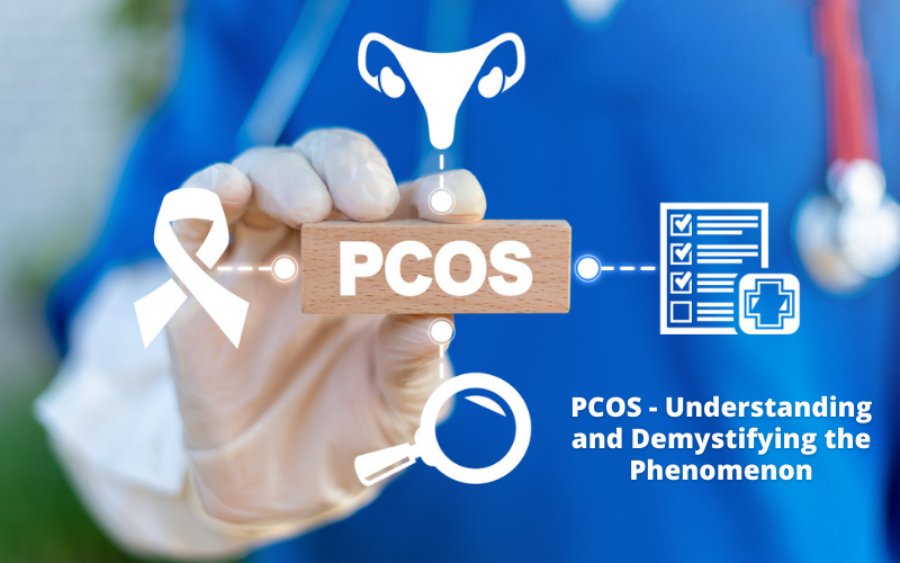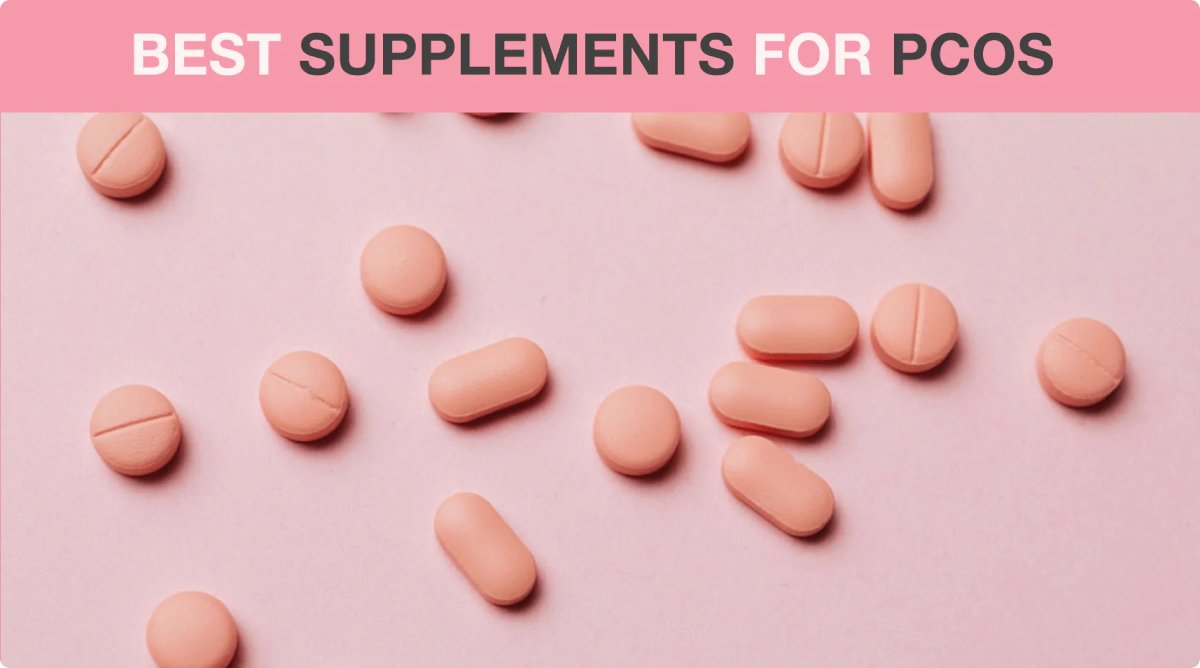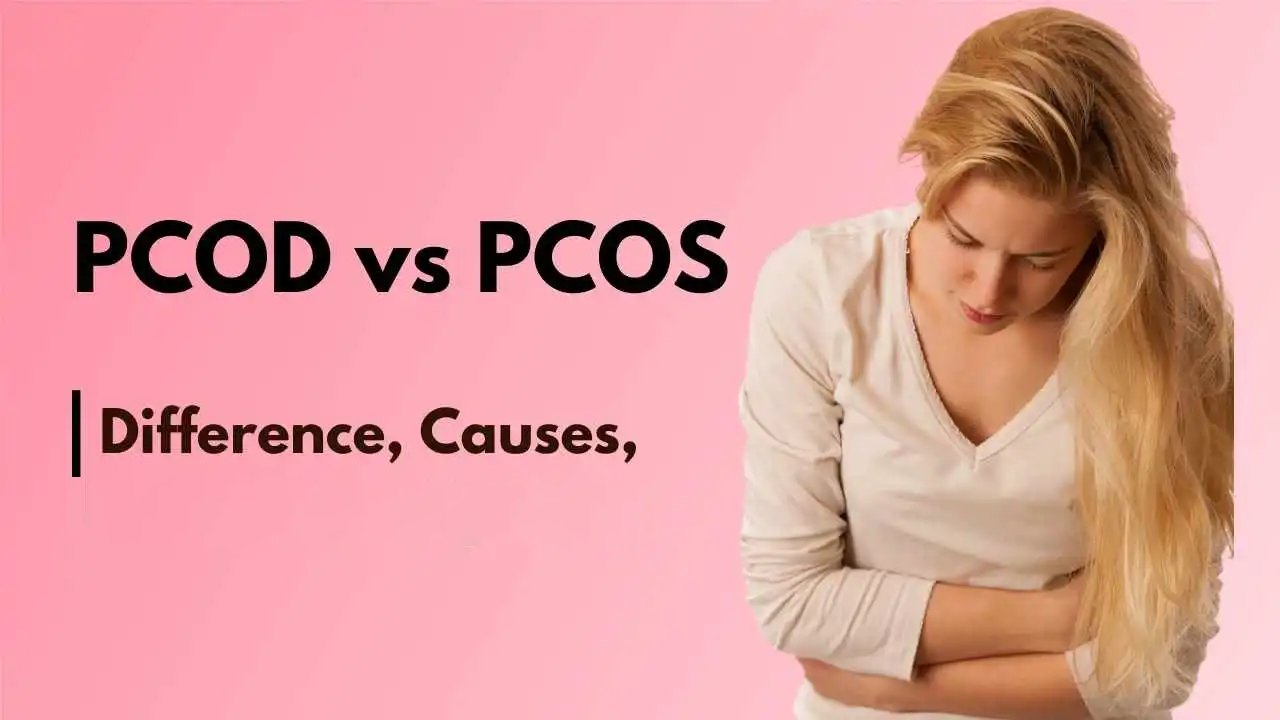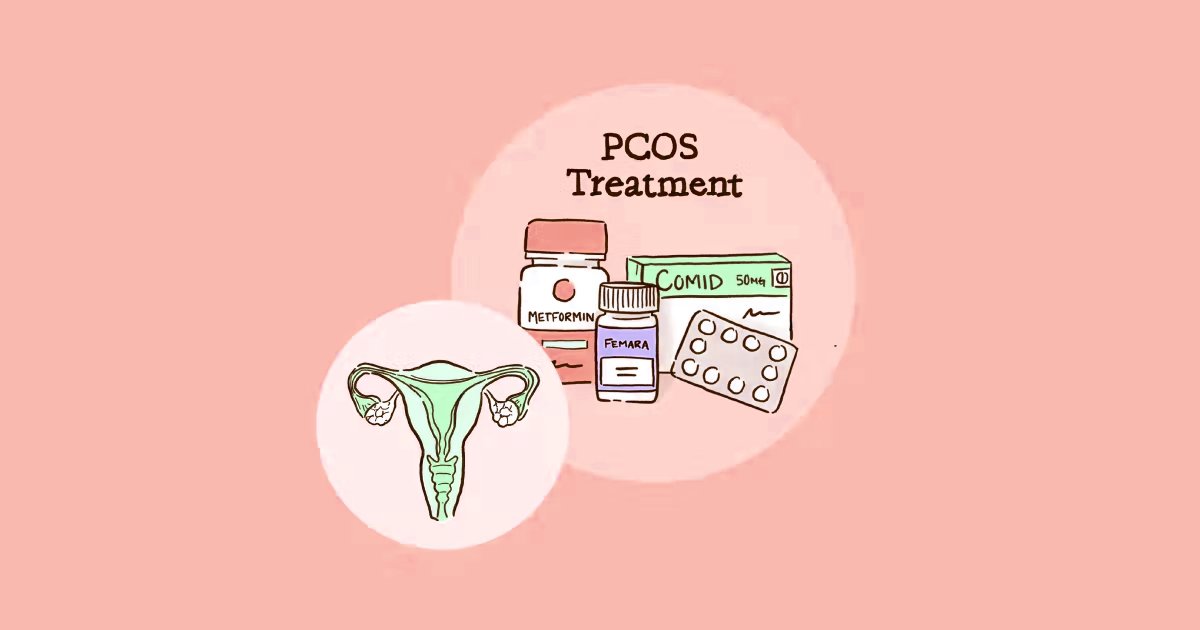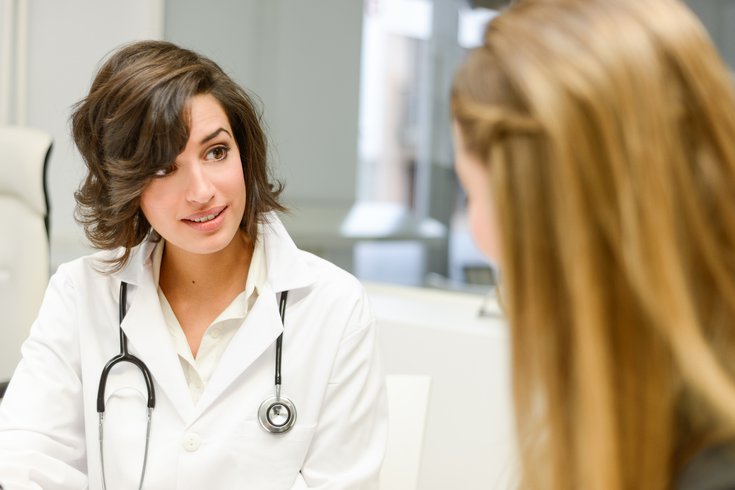PCOS, or polycystic ovary syndrome, is a common endocrine disorder that affects women of childbearing age. The condition is characterized by the development of multiple cysts on the ovaries, as well as elevated levels of androgens (male sex hormones) in the body.
PCOS can cause a variety of symptoms, including irregular periods, excess body hair, and difficulty conceiving. The exact cause of PCOS is unknown, but the condition is thought to be related to a combination of genetic and lifestyle factors.
Treatment for PCOS typically involves a combination of lifestyle changes and medication. In some cases, surgery may also be necessary.
How to Diagnose if a Person is Having PCOS?
There is no one definitive test to diagnose PCOS. Rather, the condition is typically diagnosed based on a combination of symptoms, physical exam findings, and laboratory test results. Common symptoms of PCOS include irregular periods, excess body hair, and difficulty conceiving.
Physical exam findings may include the presence of multiple cysts on the ovaries, as well as elevated levels of androgens in the blood.
Laboratory testing may be used to confirm the diagnosis, as well as to rule out other conditions that may cause similar symptoms.
Is PCOS Possible at 18?
While PCOS can occur at any age, it is most common in women of childbearing age. In some cases, the condition may be diagnosed in teenage girls.
If you are 18 years old and experiencing any of the symptoms of PCOS, it is important to see your doctor for a complete evaluation.
Is it Possible to Conceive With PCOS?
Yes, it is possible to conceive with PCOS. However, the condition can make it more difficult to get pregnant. PCOS is one of the most common causes of infertility in women.
If you are struggling to conceive, your doctor may recommend treatment with fertility drugs or other assisted reproductive technologies. In some cases, surgery may also be necessary.
What Vitamins are Best for PCOS?
There is no one definitive answer to this question. Some studies have suggested that certain vitamins may be helpful in treating the symptoms of PCOS. These vitamins include vitamin D, vitamin B6, and omega-3 fatty acids.
If you are interested in taking supplements to treat your PCOS, it is important to speak with your doctor first.
Is PCOS Worse With Age?
In some cases, the symptoms of PCOS may improve with age. However, in other cases, the condition may worsen.
Is Myo-inositol Good for PCOS?
Myo-inositol is a type of vitamin B that has been shown to be helpful in treating the symptoms of PCOS. This vitamin can be taken in supplement form or as part of a multivitamin. Ovasitol is one of the safest dietary supplements that are used to treat PCOS in women.
Difference Between PCOS & PCOD
PCOD, or polycystic ovarian disease, is a condition that is similar to PCOS. Both conditions are characterized by the development of multiple cysts on the ovaries. However, PCOD is typically characterized by the presence of ovarian cysts without any other symptoms.
How to Lose Weight with PCOS?
Some studies have suggested that a combination of diet and exercise may be helpful in treating the symptoms of PCOS. This treatment approach may be especially helpful in reducing insulin resistance and losing weight.
Does Hysterectomy Alleviate PCOS?
A hysterectomy is a surgical procedure to remove the uterus. In some cases, a hysterectomy may also involve the removal of the ovaries.
A hysterectomy is not a cure for PCOS, and the condition can still occur even after the procedure. In some cases, the symptoms of PCOS may actually worsen after a hysterectomy.
If you are seeking some natural ways to treat polycystic ovary syndrome, then here are some common ways that people suggest
10 Ways To Treat PCOS in Women
1. Eat a Healthy Diet
Eating a diet that is rich in whole grains, vegetables, and fruits can help women with PCOS manage their weight and insulin levels.
2. Get Regular Exercise
Exercise can help to lower insulin levels and improve the way the body uses glucose. It can also help with weight loss.
3. Manage Stress
Stress can worsen PCOS symptoms, so it is important to find ways to relax and manage stress levels.
4. Quit Smoking
Smoking can make PCOS symptoms worse and can also increase the risk of developing diabetes and heart disease.
5. Take medications
There are several medications that can help women with PCOS manage their symptoms, including birth control pills, metformin, and spironolactone.
6. Get Regular Checkups
It is important for women with PCOS to see their doctors regularly to monitor their symptoms and health.
7. Have a Baby
Although PCOS can make it more difficult to get pregnant, many women with PCOS are able to have healthy pregnancies.
8. Adopt a Healthy Lifestyle
Making healthy lifestyle choices, such as eating a healthy diet and getting regular exercise, can help women with PCOS manage their symptoms.
9. Join a Support Group
There are many support groups available for women with PCOS. This can be a great way to share information and deal with the challenges of PCOS.
10. Seek Professional Help
If lifestyle changes and medications do not help, there are other options available, such as in vitro fertilization (IVF). IVF can help women with PCOS who want to become pregnant.
Conclusion
PCOS is a condition that can have a significant impact on a woman’s health. It is important to seek professional help if you think you may have PCOS. There are many treatment options available, and with the right treatment, most women with PCOS can manage their symptoms and live healthy lives.

